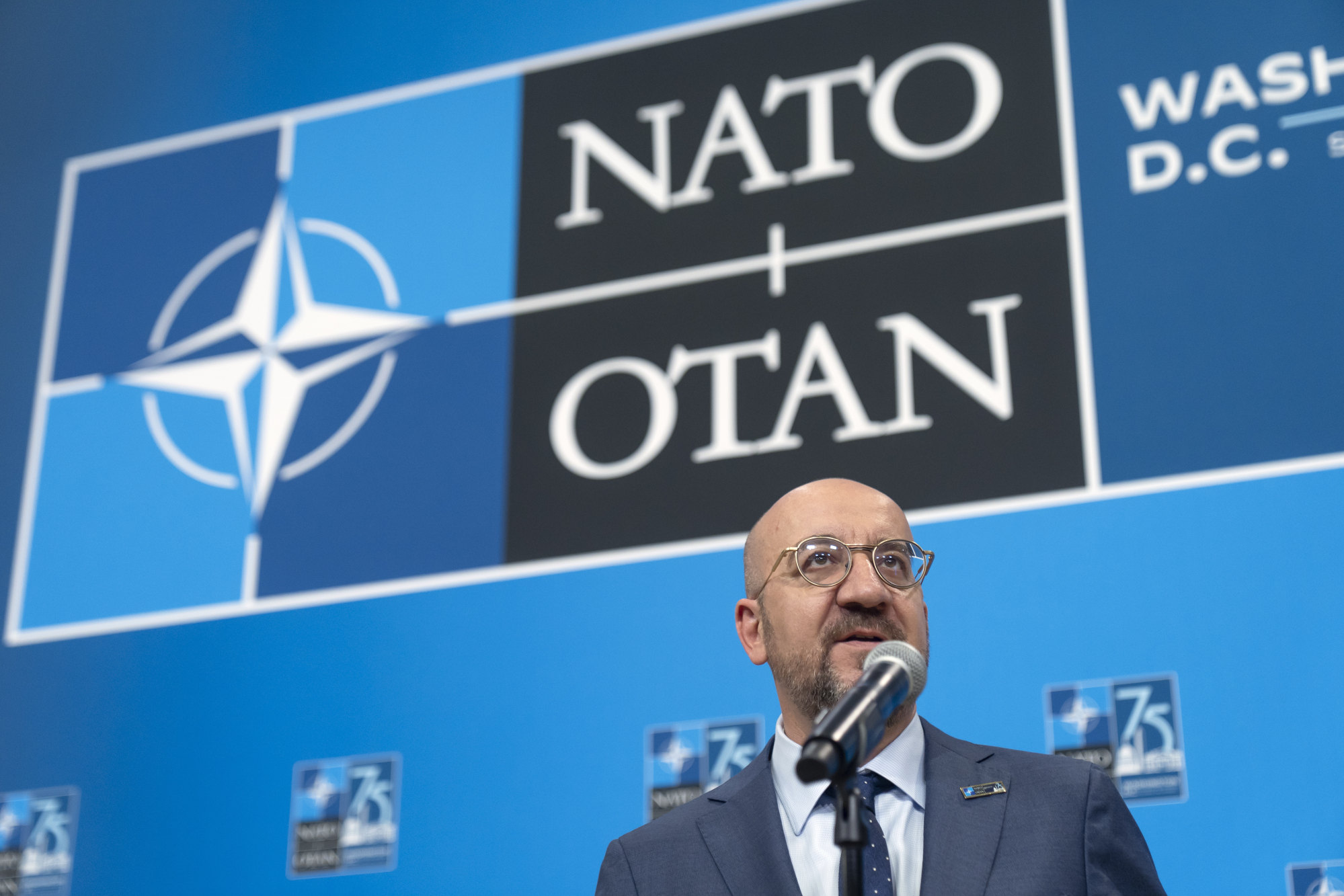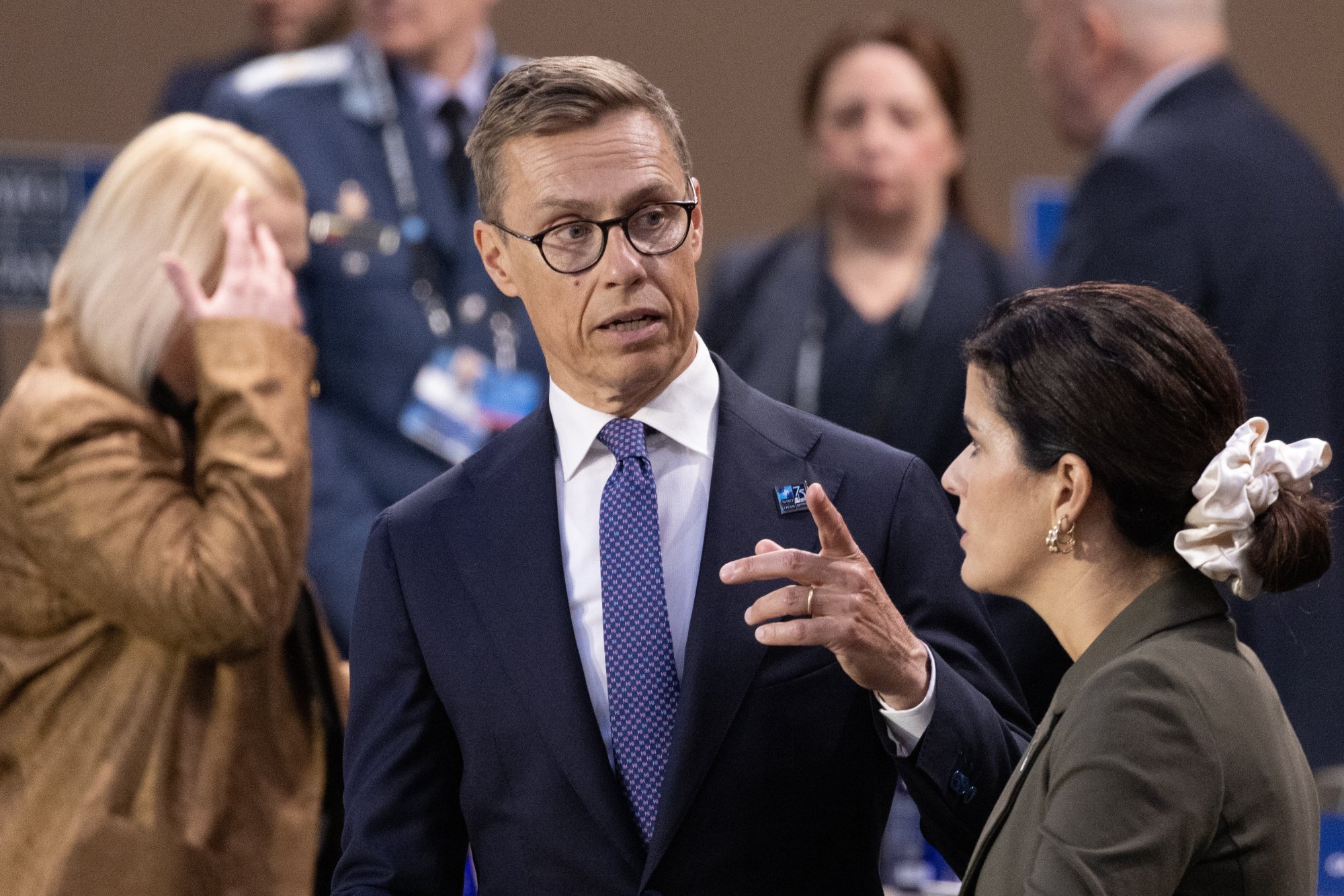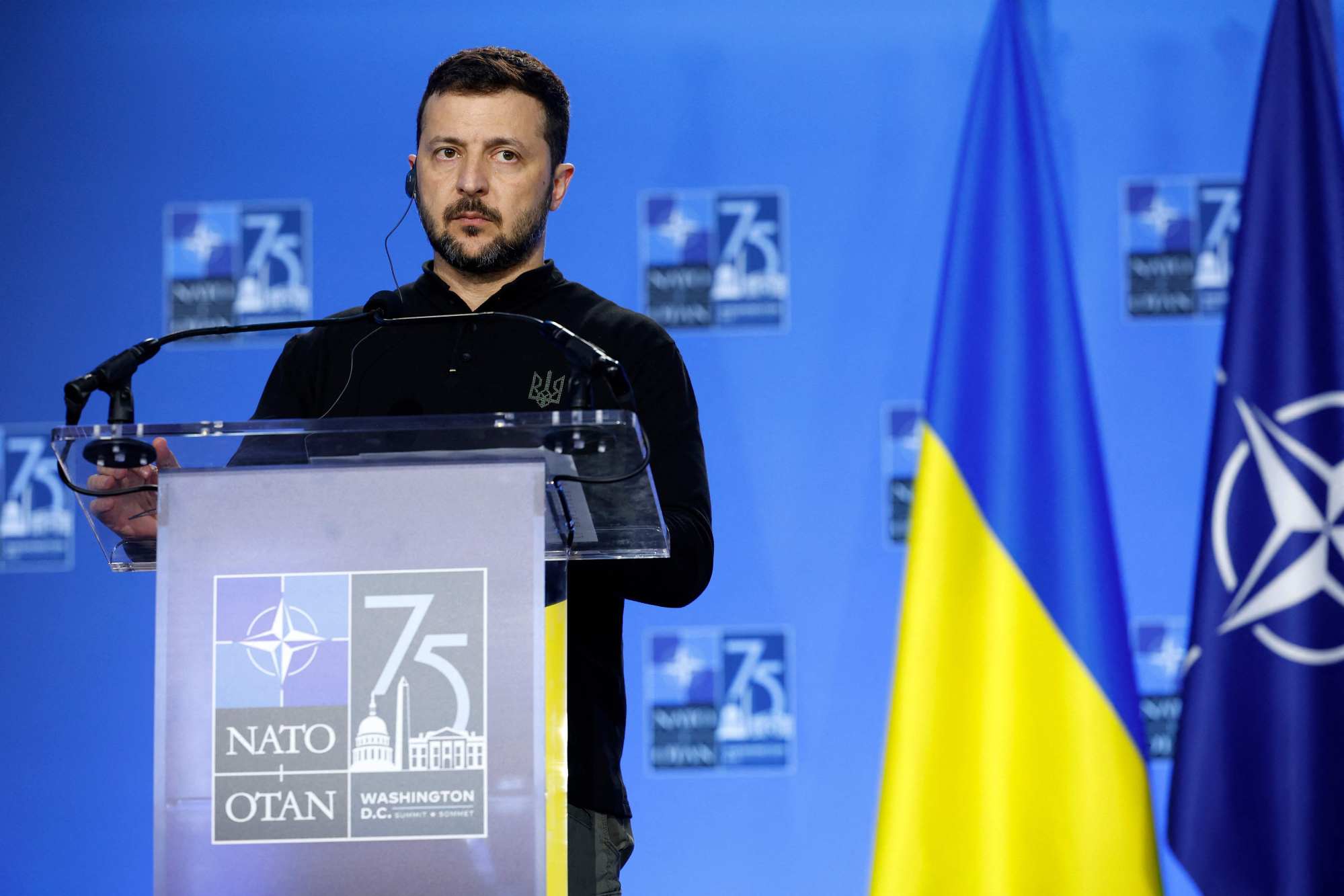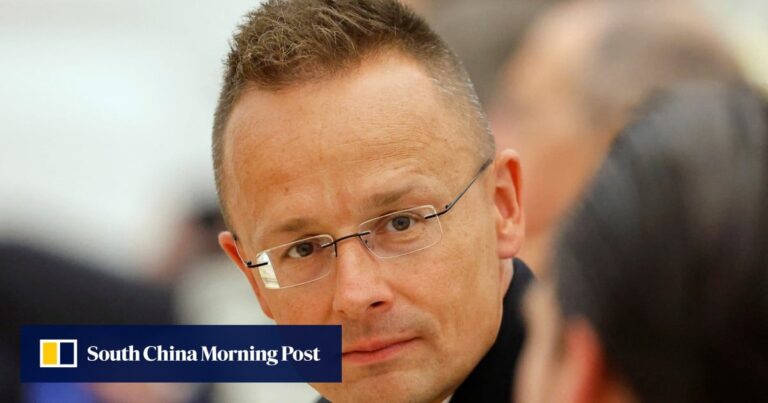Responding to a question from Hungarian state media, the foreign minister said there were “completely different views” on the issue.
NATO’s statement, issued after a high-level summit on Wednesday, said China’s interests and reputation would be adversely affected if it did not end its political and material support for Moscow’s “war effort”.
NATO Secretary-General Jens Stoltenberg said there was “no significant difference” between sending arms and supplying dual-use goods such as microelectronics which NATO alleges Russia is using to boost defence production.
The Chinese government has repeatedly denied the accusations, calling the statement “unjustified and malicious”.
Orban said NATO was “behaving more and more like a warring organisation”, adding that Hungary would not take part in any NATO “mission in Ukraine”.
On 1 July, Hungary assumed the EU’s six-month rotating presidency.
At the time, Hungary adopted the slogan “Make Europe Great Again,” reminiscent of the “Make America Great Again” campaign slogan promoted by former U.S. President Donald Trump, a vocal critic of NATO.
Asked about a boycott by EU member states, European Council President Charles Michel on Thursday sought to distance the EU from Orban’s own “peace” vision.
“The rotating presidency system does not represent the EU externally,” Michel said. “What has happened today demonstrates the EU’s strong determination to support Ukraine and to continue all efforts to put pressure on Russia,” he added.

Finland, NATO’s newest member and a long-time member of the EU, said it was not worried about friction within the two groups. The EU and NATO currently have 23 common member states.
“I’m not too worried about divisions because Viktor is clearly in the minority, but I fundamentally disagree with his approach and I’ll say that out loud,” Finnish President Alexander Stubb said of Orban on Thursday.
“I see no point in engaging in dialogue with an authoritarian regime that is violating international law.”
“Viktor Orban [Nato] “We cannot expect any form of negotiation from either our allies or the European Union,” Stabb added.
Despite growing opposition to Orban across Europe, the Hungarian prime minister has not hesitated to state publicly that he will support Trump in the upcoming US elections – a support that is not understood to be widely shared on the continent.
Stabb expressed confidence in Biden’s leadership, stating that he had “no concerns whatsoever about the leadership of the current president of the United States.”

Trump has been a fierce critic of NATO since before he took office in 2016, and has vowed to cut off US aid to Ukraine if he wins the November election.
Earlier this week, the Republican leader said he “used to not really know what NATO was,” but added that it “took me less than two minutes to figure it out.”
In March, Trump and Orban met at the former president’s private club and mansion, Mar-a-Lago, in Florida, during which Trump praised Orban.
“There is no better, no smarter, no better leader than Viktor Orbán,” he said. “He is brilliant.”
U.S. national security adviser Jake Sullivan on Thursday refused to speculate on whether Orban’s trip to Russia and China had been coordinated with Trump, saying the trip was “adventurous” and had no coordination with Ukraine.

Speaking to reporters alongside Stoltenberg, Ukrainian President Vladimir Zelensky hailed the promised aid as a “success” for Ukraine in its fight against Russia.
Zelenskiy said Kiev’s entry into NATO would be a “success” for the allies and called on Ukraine’s allies to lift remaining restrictions on the use of weapons to attack targets inside Russia.
Asked if he was aware of Orban’s trip, the Ukrainian leader replied that “not all leaders can negotiate.”
“It is not NATO’s role to regulate the various travel plans of NATO leaders,” Stoltenberg said, pointing to Wednesday’s joint statement.
“What’s important for NATO is that all NATO member states agree on the policy. We agreed yesterday to a very strong declaration of 32 allies expressing support for Ukraine,” he said.

